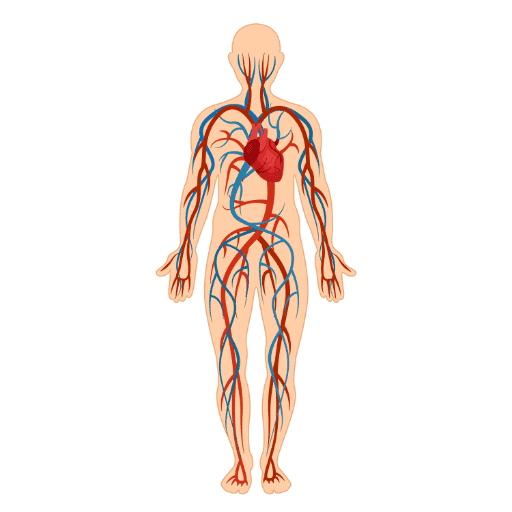Welcome to the Circulatory System Functions quiz! In this quiz, we will explore the amazing ways in which your circulatory system helps keep your body running smoothly. From pumping blood to delivering nutrients, your circulatory system is like the body’s very own delivery system.
Did you know that your heart beats around 100,000 times a day to keep your blood flowing? That’s just one of the many fascinating facts you’ll learn about in this quiz. So get ready to dive in and test your knowledge of how the circulatory system functions to keep you healthy and strong!
Play Circulatory System Functions Quiz
Instructions
- This quiz is multiple choice.
- Read each question carefully before selecting an answer.
- Choose the best answer for each question.
- You will see the missed questions with correct answers at the end of the quiz.
Quick Facts
- The heart pumps blood throughout your body to deliver oxygen and nutrients to your cells.
- Veins carry blood back to the heart, while arteries carry blood away from the heart.
- Capillaries are tiny blood vessels that connect arteries and veins, allowing for the exchange of nutrients and waste products.
- Blood is made up of red blood cells, white blood cells, and platelets, each with their own important roles in the body.
- The lymphatic system works alongside the circulatory system to help remove waste and fight off infections.
- Regular exercise can help improve the efficiency of your cardiovascular system and keep your heart healthy.
- Eating a balanced diet rich in fruits, vegetables, and whole grains can help support the proper functioning of your cardiovascular system.
- Smoking and a diet high in saturated fats can contribute to heart disease and other circulatory issues.
- High blood pressure, also known as hypertension, can put strain on your heart and blood vessels, increasing your risk of heart attack or stroke.
- Stress can also have a negative impact on your circulatory system, so finding healthy ways to manage stress is important for overall heart health.
Downloads
No downloads found
Study Tips
- Create a study schedule and stick to it.
- Find a quiet and comfortable study environment.
- Remove distractions such as phones and social media.
- Take breaks every 25-30 minutes to avoid burnout.
- Use active studying techniques like summarizing, highlighting, and teaching concepts to someone else.
- Practice retrieval by testing yourself with flashcards or practice quizzes.
- Stay organized with notes, study guides, and resources.
- Stay hydrated and eat brain-boosting foods like fruits, nuts, and whole grains.
- Get enough sleep to improve memory retention and cognitive function.
- Reward yourself for reaching study goals to stay motivated.
